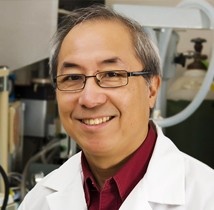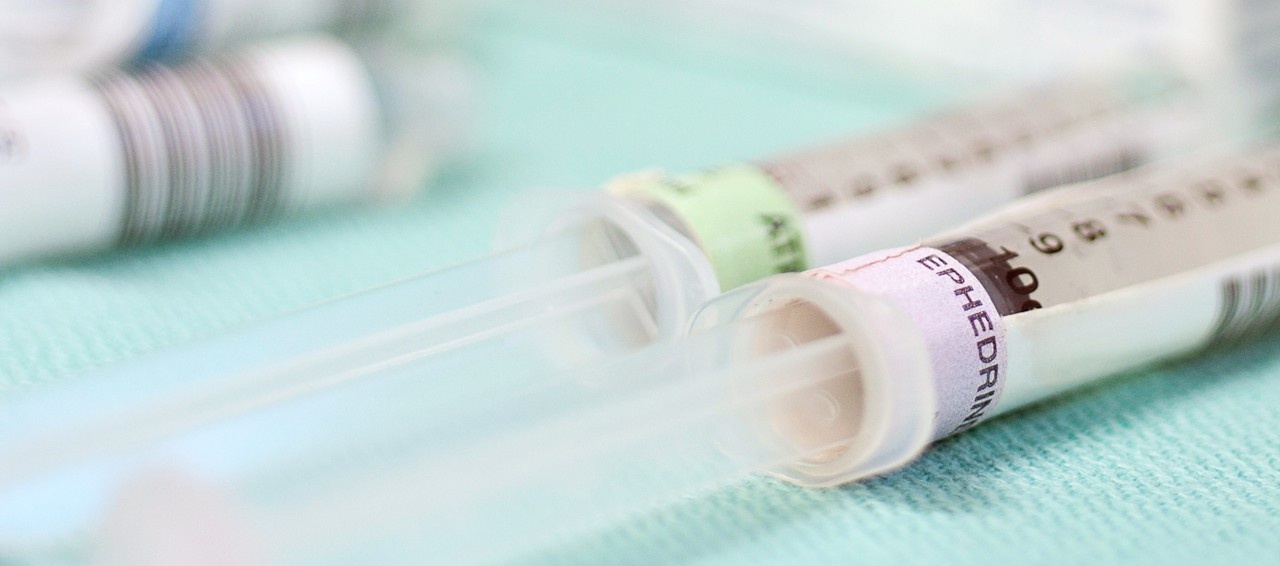Orlando Hung, MD, FRCPC
Professor

Email: orlando.hung@dal.ca
Phone: 902-473-7767
Fax: 902-473-4493
Mailing Address:
1276 South Park 10th Floor, North, Rm 275
Halifax, NS B3H 2Y9
- Airway management
- Clinical pharmacology
- Drug delivery systems
Administrative Roles
- Staff anesthesiologist - QEII Health Sciences Centre, Halifax
Research interests
Dr. Hung focuses on airway management, clinical pharmacology and drug delivery systems. Through collaborations with other clinicians and scientists at Dalhousie, Stanford, and the University of Toronto, Dr. Hung has developed and patented a number of innovative drug delivery systems and medical devices.
Selected publications
- Hung OR, Stewart RD: Lightwand Intubation: I. A new intubating device. Can J Anaesth 1995;42:820-5.
- Hung OR, Pytka S, Morris I, Murphy MF, Launcelott G, Stevens SC, MacKay W, Stewart RD: Clinical trial of a new lightwand (TrachlightTM) to intubate the trachea. Anesthesiology 1995;83(3):509-514.
- Hung OR, Whynot SC, Varvel JR, Shafer SL, Mezei M: Pharmacokinetics of inhaled liposome-encapsulated fentanyl. Anesthesiology 1995;83:277-284.
- Mulcaster J, Mills J, Hung OR, et al. Evaluation of proficiency of laryngoscopic intubation by novice intubators. Anesthesiology 2003;98(1):23-7.
- Szczesniak A, Kelly MEM, Whynot, S, Shek P, Hung OR. Ocular Hypotensive Effects of an Intratracheally Delivered Liposomal )9-Tetrahydrocannabinol Preparation in Rats. Journal of Ocular Pharmacology and Therapeutics 2006 2:160-7.
- Hung O.R., & Murphy M.F., (2024). Hung’s Management of the Difficult and Failed Airway, 4th Edition. McGraw Hill.
Selected awards and honours
- Research Award in Anesthesia, Canadian Anesthesiologists’ Society (1992, 1997, 2002)
- Teacher of the Year (1993), Dalhousie Faculty of Medicine
- Mentor of the Year, Department of Anesthesia, Pain Management & Perioperative Medicine
- Excellence in Teaching Award (2005), Professional Association of Residents in the Maritime Provinces
- Dalhousie Medical Alumni Association Exceptional Service Award
- King Charles III Coronation Medal
Selected memberships / Service and activity
- Member, Editorial Board, Canadian Journal of Anesthesia for the past 9 years
- Co-author of the textbook, Management of the Difficult and Failed Airway
Dr. Hung's Rwanda Project - Building Homes, Improving Healthcare
In 2019, Dr. Orlando Hung founded a non-profit organization in Rwanda to address the critical shortage of locally trained anesthesiologists by providing a sustainable incentive for them to remain in the country. One recurring obstacle to retaining trained health care workers in Rwanda is the lack of affordable housing. The foundation’s hope is that by providing affordable homes it would be easier for anesthesiologists to continue to work in their home country. It is hoped that these affordable homes will offset competing offers from richer countries and international agencies who offer much higher salaried employment and will become a sustainable incentive to staying home.
After the genocide in 1994, only one anesthesiologist was left, in what remained of the country of 11 million. As a result, much of the surgery that required anesthesia then shifted to being carried out by anesthesia technicians and nurses. There was, and still is, a severe shortage of trained anesthesiologists in the country. The most obvious sign that Rwandan health-care is under-resourced is that anesthesia technicians are providing most of the anesthesia care and that the technicians have very little training and little to no supervision simply because there are no anesthesia staff to provide that function.
How it started
In collaboration with the University of Rwanda, Dalhousie (led by Dr. Thomas Coonan), and McGill University (led by Dr. Franco Carli), developed the original Global Health program in 2006 to provide training to Rwandan anesthesiology residents. Teams of faculty members, residents, and fellows from both institutions and other Canadian and the US Centres (including Stanford University) went every 4 weeks to provide hands-on didactic and hands on clinical teaching Dr. Hung has been supporting this initiative since 2013. Today, the number of anesthesiologists has grown from one to around 60 anesthesiologists (according to Dr. Paulin Banguti, former Head of the Department of Anesthesiology in University of Rwanda). However, due to the salary disparity for doctors, many trained anesthesiologists cannot earn sufficient income to afford the most basic need - a home - and have little choice but to find work abroad.
Recognizing that low salaries made housing unaffordable and the lack of housing discouraged many from raising their families in their home countries, Dr. Hung initiated a rent-to-own housing program for locally trained anesthesiologists. Dr Hung indicated that funding is built into the formula to allow for sustainable expansion - independent from foreign aid. To make this possible, he secured a loan from a Canadian bank, which offered significantly lower interest rates than Rwandan institutions to finance the construction of houses in Kigali, the capital of the country, at an estimated cost of $50,000 US each.
These houses were then rented to Rwandan anesthesiologists for ten years, after which they would gain full ownership. This model offered a tangible path to homeownership, a key factor in encouraging these vital medical professionals to stay and serve their communities.
Expanding the program
To expand the program's reach, Dr. Hung sought to collaborate with, and engage Canadian professionals and organizations, leveraging their social standing to secure further loans for the program. The organization operates as a financially neutral NGO, using rental income to repay loans and fund the construction of additional houses to ensure long-term sustainability. At its core, the initiative is driven by a single mission: to enable these vital medical professionals to remain where they most want to be—at home, serving their communities.
Long term goal
“The goal is to build a foundation for a healthier nation, ensuring that the skills and knowledge acquired through local training remain within the community,” Dr. Hung explained. “By addressing the fundamental needs of these professionals, this program aims to create a ripple effect, improving access to vital medical services and ultimately enhancing the quality of medical care for all Rwandans.” He hopes this initiative would not only sustain itself after his retirement but also serve as a model for expansion into other low-income countries facing similar healthcare challenges.
For any questions about this initiative, please contact Dr. Hung at Orlando.Hung@dal.ca
